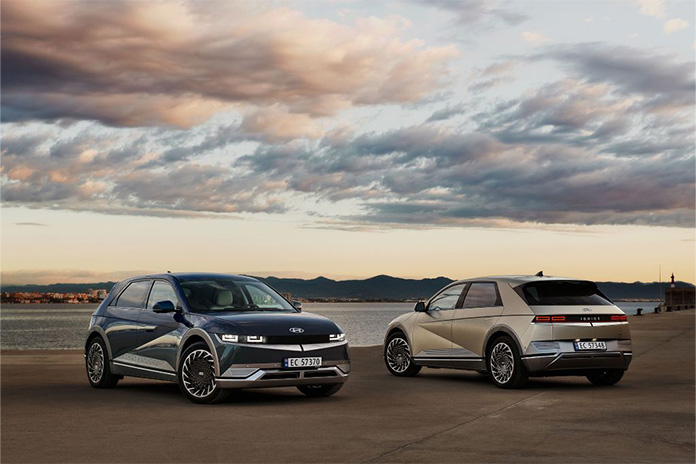
IT has been a long time since cars were assembled in Singapore. But with the rise of the electric vehicle (EV) and clean production methods, car assembly resumes in Jurong, after nearly four decades.
The Hyundai Motor Group Innovation Centre is the first EV production smart facility on the island, expected to roll out around 30,000 cars annually by 2025, including the IONIQ 5, IONIQ 6 and Kona Electric models.
The first model off the belt is the IONIQ 5, a larger-than-it-appears SUV which is designed to be practical while being easy on the eye. The IONIQ 5 has bagged a few of the numerous international awards up for grabs, and in this case its selection seems apt.
ALSO READ: Where Will It Be Safe In 2024?
In the silent realm of EVs, there is a sameness about many cars which is hard to escape at the mass-market price point.
Car companies try to address this by inserting opinions in the design that they hope will stir an emotional nerve somewhere along the line, beyond practical considerations.
Many play the sustainable card, some opt for the lifestyle choice, and others try to remove any walls between your home and your vehicle.
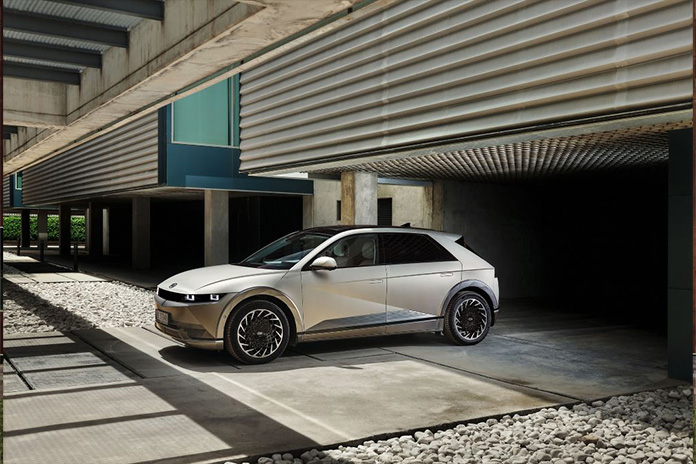
Designed For Presence
The IONIQ 5 opts for the living room concept With the idea being to bring your home with you as you step into your car (which could be the cost of a home in many countries).
With its refreshing looks, the IONIQ 5 pulls together a variety of influences that come together in an SUV that has presence.
With well-defined lines worked into the sides — running diagonally across the doors and across the panels — there is a contemporary minimalism that seems to be a leitmotif for this and possibly subsequent Hyundai models.
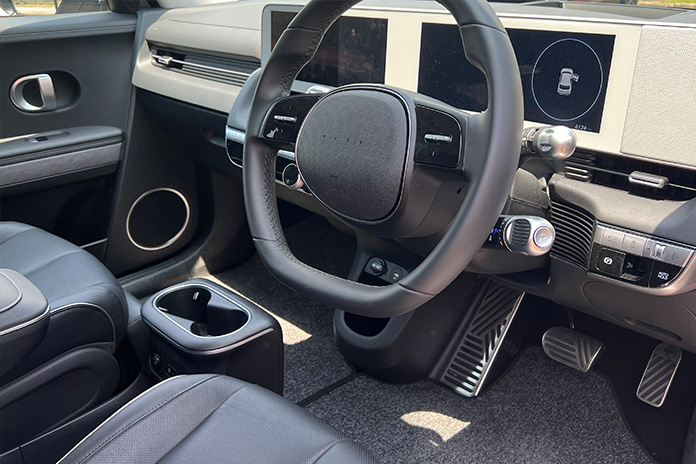
Design Minimalism
The definite design form is also evident in the front, where a clamshell bonnet keeps divisive lines to a minimum, with LED pixel lights creating a bright and modern highlight.
The lights are also evident in the rear, which is a bit more deliberate in trying to reduce bulk with slim lines and sharp angles, offering a futuristic feel with retro touches.
ALSO READ: BMW 3 Series, Pushing 50
Door handles run flush with the body lines, popping out when you need to open a door. For Singapore’s ageing society, the back doors should be quite useful, opening almost to 90°, making it easy to get in and out of the IONIQ 5.
The flat floor makes it easy to scooch across at the back. And if you need to load in oversized objects in the boot, there’s a large area available, with the option to drop some seats to make extra space. But that’s pretty standard fare these days.
What’s becoming quite common is the kick open function for hands-free access to the boot. That’s missing in the IONIQ5. One of the few things that doesn’t seem to have caught up with the rest of the industry.
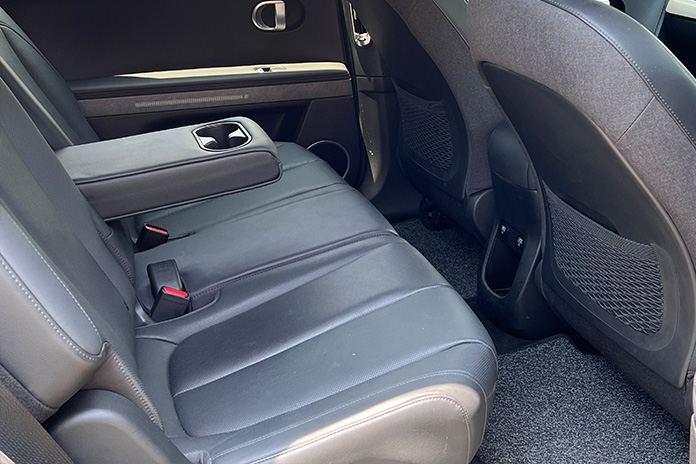
Power On Tap
While there is an AC charger in the backseat to power up your laptop in some models, the USB connectors are still via old-world (by today’s zippy standards) USB A connections.
And while Apple CarPlay and Android Auto are offered, they only kick in with a wired connection, which kind of disrupts the clean look of the interior with its large displays and touchscreen operations.
But the IONIQ 5 does make use of whatever space is available as a result of being electric.
ALSO READ: For The Sake Of Sake
By keeping things simple, it offers more room than its outward form would suggest. There isn’t a gear shifter in the floating centre console — it’s all loaded onto a stalk on the steering wheel. Two paddle shifters take you through four levels of energy regeneration when taking your foot off the accelerator.
The Zero Gravity electric front seats can be made to recline, for when you do want to use the car as your living room. And with the Vision Roof, you can open the sunshades and look to the heavens. And even the backseats can slide and recline.
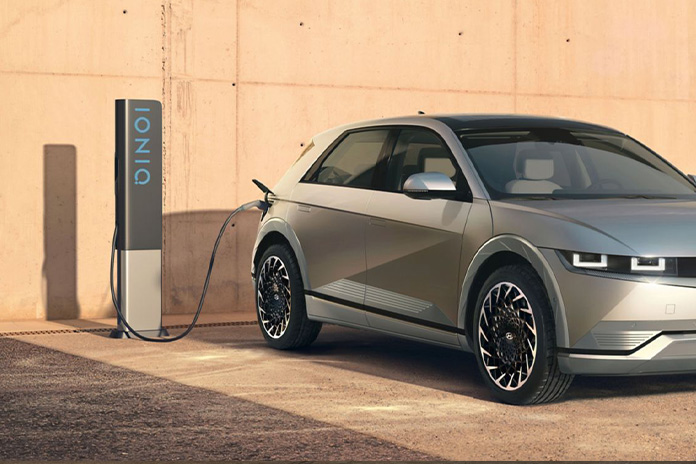
Always Within Range
Range is no longer of much concern these days in EVs, though charging speeds are still a talking point. The IONIQ 5 supports 800V charging, with 80% charging accomplished within an hour, depending on the type of DC charging point used.
Depending on the variant you choose, the IONIQ 5 ranges in price from *$191,000 to $260,000 which still puts this mass-market car well beyond the reach of the masses. This is a trend that will prevail.
So, driving the IONIQ 5 is unremarkable, which is presumably a good thing, for an EV. It’s smooth, fast and equipped with enough driver assistance features to get you safely to your destination in comfort. On the cusp of the era of autonomous vehicles, that’s about all you might need from a car.
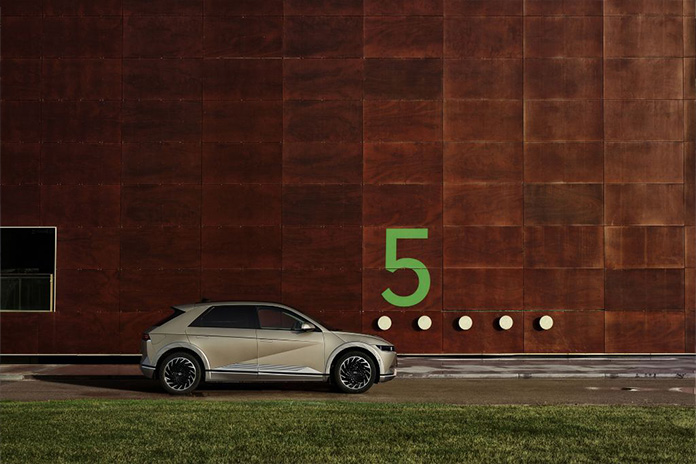
HYUNDAI IONIQ 5 RATING
Styling: 8/10
Interior: 7/10
Connectivity: 6.5/10
Ride: 6.5/10
Handling: 6.5/10
Power: 7/10
Overall: 7/10
*Please reconfirm price with dealer.
Read more STORM-ASIA car reviews HERE.





















